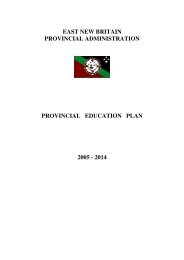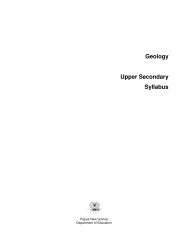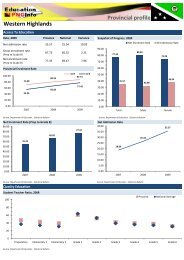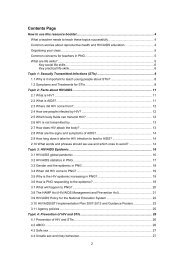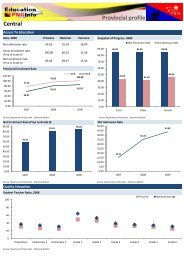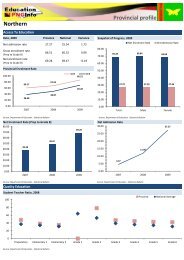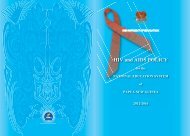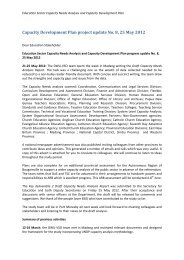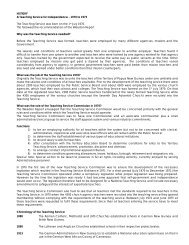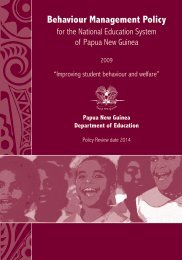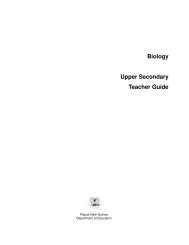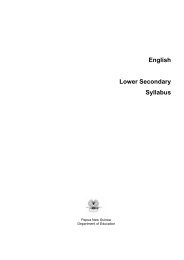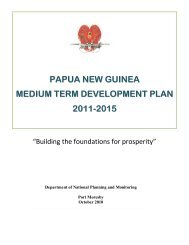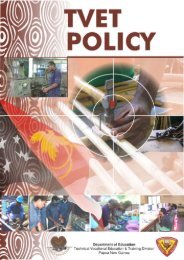Physical Education - Department of Education
Physical Education - Department of Education
Physical Education - Department of Education
Create successful ePaper yourself
Turn your PDF publications into a flip-book with our unique Google optimized e-Paper software.
<strong>Physical</strong> education<br />
School, home, and community support<br />
Many Papua New Guineans value physical activity as part <strong>of</strong> their culture<br />
and lives. Therefore, it is very important to recognise not only the school, but<br />
the home and community as settings for promoting physical activities.<br />
Consultation, interaction and cooperation between the school, home and the<br />
community should always be encouraged for better participation in the<br />
development <strong>of</strong> school programs, in and the approaches used for teaching<br />
and learning. Having a supportive physical and social environment<br />
enhances a person’s growth and development, and their participation in<br />
physical activity. It also creates effective relationships and promotes safety.<br />
The students will then assess and analyse the support given to them so that<br />
they will recognise the need to feel responsible for their own fitness, health,<br />
safety and general wellbeing. They will also value the importance <strong>of</strong> working<br />
cooperatively for an active and healthy society.<br />
Catering for diversity<br />
Papua New Guinea culture is unique and diverse with many cultural beliefs,<br />
practices, languages, celebrations, rituals and customs. These cultural<br />
beliefs and practices shape and value this diversity and become the<br />
foundation <strong>of</strong> cultural and personal identity. This diversity also influences the<br />
types <strong>of</strong> physical activities, such as games and sport, in which people prefer<br />
to participate. For example, traditional games and recreational activities in<br />
the Highlands would differ from the Coastal areas <strong>of</strong> Papua New Guinea.<br />
<strong>Physical</strong> <strong>Education</strong> will continue to promote this diversity both inside and<br />
outside <strong>of</strong> the classroom.<br />
Content summary<br />
The content <strong>of</strong> the syllabus is organised into three strands that outline the<br />
knowledge, skills and attitudes distinctive to <strong>Physical</strong> <strong>Education</strong>.<br />
The strands are:<br />
• safety<br />
• movement<br />
• physical activity.<br />
The content is expressed through the substrands, outcomes, indicators and<br />
elaborations that are specific to each strand. <strong>Physical</strong> <strong>Education</strong> will make a<br />
significant contribution towards preparing students to take an active and<br />
responsible role in society. The subject will also develop in students a<br />
commitment to positively participate by developing in each student the<br />
following:<br />
• movement skills with patterns and techniques<br />
• personal fitness to improve health and enhance participation<br />
• self-esteem and social wellbeing<br />
• a sense <strong>of</strong> fairness and appropriate behaviour<br />
• willingness to participate and cooperate as part <strong>of</strong> a team.<br />
5



